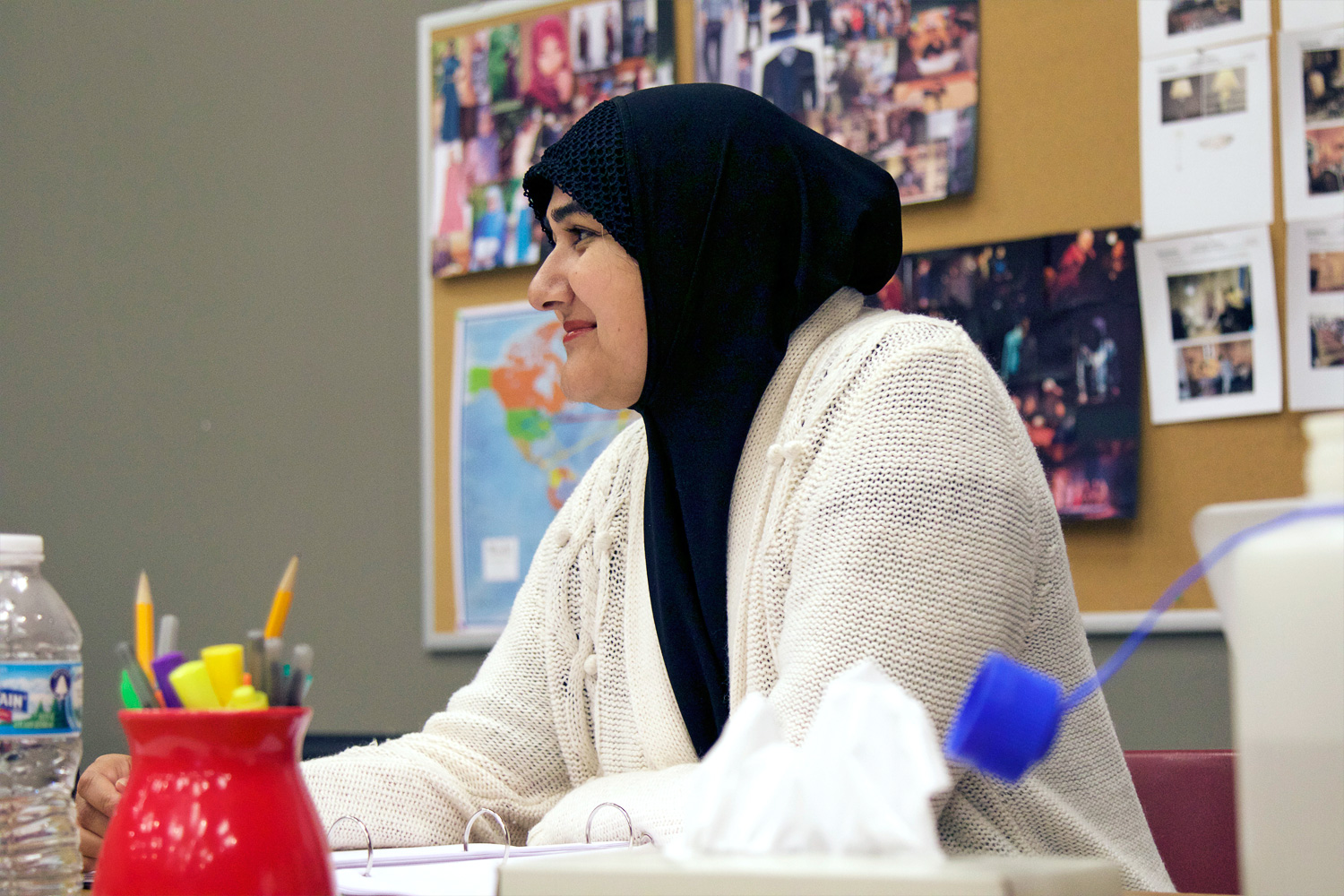Up next in our series of interviews with notable, in-the-know locals: Rohina Malik, Niles North grad, playwright, and associate artist at the 16th Street Theater. Malik’s 2016 play, Yasmina’s Necklace, gets its Chicago premiere at the Goodman Theatre on Friday, October 20.
What is Yasmina’s Necklace about?
The story's about two families. There’s Yasmina, whose family has fled Iraq for the US. Then there’s Sam. His mom is a Puerto Rican Muslim, and his dad is an Iraqi Muslim. Sam is a modern guy, wants to be part of the city. He's pushing away from his culture. He finds himself in an arranged marriage situation where he's introduced to Yasmina. Both he and Yasmina don't want to be there. The story is about when these two very different people—these two very different Muslims—meet. It’s also about the refugee crisis, and the human cost of war.
What’s the necklace referenced in the title?
My friend was at a grocery store while the U.S. was at war with Iraq, and he saw a woman wearing a necklace. The pendant was in the shape of Iraq, with “Iraq” written in English in the center. At the time, I had been informally speaking to Iraqi refugees who had resettled in Chicago, and many of them, if they were outside their homes, would only whisper that they were from Iraq. So that woman and her necklace stood out to me. I started to think, “Who is this woman wearing this necklace? What's the story behind the necklace?” I built a character around the necklace, and that's how Yasmina was born.
Part of the play seems to be about the diversity of the Muslim experience.
I wrote the play because I’m very disturbed that, when you see Muslim characters, we are never regular people. We are always the villains, the guys plotting to blow something up. And if you actually got to know my community you would find, first, that it's a very educated community. How many Muslims are doctors, lawyers, engineers? We also have, within the community, folks that are less educated—blue-collar—but are very hard-working in what they do. So we have everything.
When I was writing my one-woman play, Unveiled, I did a lot of research on hate crimes. And what I found was, hate crime never begins with the violence, or the weapon. It begins with an atmosphere of negative stereotyping about a group of people and with degrading language. And when those two things are left unchallenged, the result could be a hate crime. That's why, whenever my community is represented in the media as terrorist-type characters, the ramifications can be really bad. So I was hoping the play could take audiences into two living rooms of two normal, regular Muslim families, Yasmina's family and Sam's family. They're not perfect people; they're human. They're just like everybody else, with their faults and their contradictions.
The play premiered in early 2016. Do you think it’s taken on an added importance after the election?
I remember feeling frustrated when I couldn't find a home for this play while the war was happening in Iraq. But now I kind of see God's divine plan. It’s coming out at a time where it's not so much about the war in Iraq, but about anti-refugee rhetoric, anti-immigrant rhetoric, anti-Muslim rhetoric, anti-Latino rhetoric. All those communities are in my play. Brecht said that art is the hammer to shape reality, to shape the world. To me, writing this play was that hammer to smash those stereotypes.



